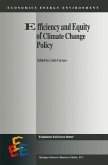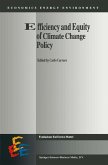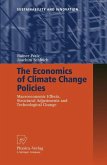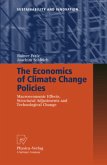The world is getting hotter as it experiences the extremes of global climate change. In 1999, catastrophic storms hit Honduras, China and East India, bringing severe devas tation to lives and national economies. EI Nino swept across the Pacific in early 2000, inflicting the worst floods on Mozambique and neighbouring countries. Industrialised nations are not immune to global warming - cases of encephalitis, a disease trans mitted by mosquitoes, were reported in the State of New York. In Antarctica, an iceberg seven times the size of Manhattan island broke loose and floated towards Cape Horn. The melting of Arctic glaciers also continues - huge volumes of fresh-water will disrupt the warm conveyor-belt from Central America to Europe. The net effect of convergent glacial drifts from the polar regions to the equator is expected to inten sify cloud formation in the tropics - hence exacerbating global warming. As the destructive forces of nature intensify, so does the rhetoric from environmental organ isations - as evidenced by the disruption of the last World Trade Organisation con ference in Seattle. It is now up to civilisation to challenge climate change. It can achieve this by command and control as well as flexible mechanisms at home and abroad, before the process of global warming becomes totally irreversible.
Hinweis: Dieser Artikel kann nur an eine deutsche Lieferadresse ausgeliefert werden.
Hinweis: Dieser Artikel kann nur an eine deutsche Lieferadresse ausgeliefert werden.
From the reviews of the first edition: "This book principally addresses climate change and describes remedial strategies for developing countries based on the 'Clean development mechanism' of the 'Kyoto Protocol'. It provides a very comprehensive account of the array of proposals and economic instruments devised by the international community - including the Joint Implementation and Emissions Training initiatives of the Protocol - to abate global warming. The effects of other major atmospheric, land and water pollutants from industries and domestic sources are also covered." (Bulletin of the International Institute of Refrigeration, Issue 3, 2002)








